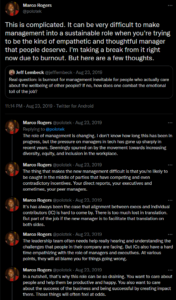Several weeks ago, Dawn and I discussed several of the traits that are often found in strong leaders. Among them, there was one that is so overlooked that it is the first thing people ask me about my list: the power of observation.
Observation is key to so many aspects of leadership, but everybody that asks me about it meets it with a similarly dismissive attitude.
“Everyone knows how to look,” they deride, “it’s obvious.”
Observation is more than merely looking, it’s looking with intent! Being properly observant requires actively paying attention to your surroundings (and yourself) with the goal of taking action on the information that you find. it’s not merely being aware of the things around you, but earnestly absorbing them and processing what you find. It requires diving deeper than the surface; there are numerous levels of observation, and each layer deeper you manage to go is an additional degree of insight (and action) afforded you.
At its most basic, a leader should be in the habit of observing the general attitude of the team. How does the team seem when working? When not working? Interacting with you? When you’re not obviously around? With each individual member? With people outside of the team? When things are stressful?
The answers to questions like these paint a picture of the health of your team that you will never get by simply asking—the team might not even realize, for example, that they’re combative to “outsiders” but through careful observation you might note the signs. You might observe tension between teammates before it becomes notable to those involved, even.
Remember, though, that observation implies a willingness for action. When you observe behaviors that betray underlying “illness”, it is incumbent upon you to act. It’s the combination of careful observation and resulting action that will really elevate your ability to lead your team.











